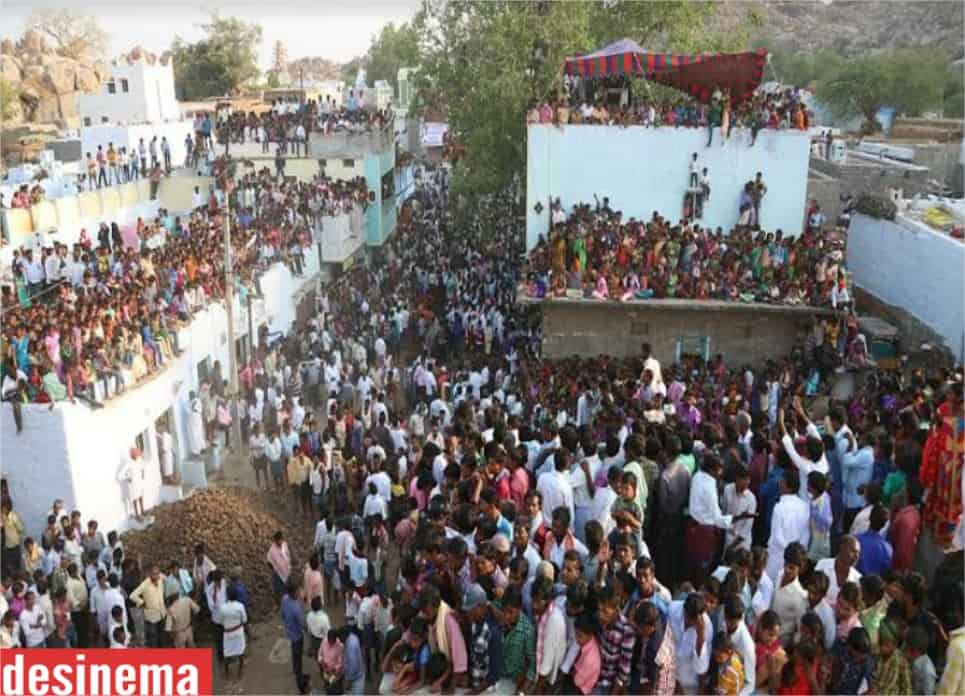Ugadi is a tradition where people gather in large numbers, form teams, and hurl cow dung cakes at each other. It is celebrated in Kurnool district’s Kairuppala village.
Huge crowds gathered at Kurnool’s district Kairuppala village in Andhra Pradesh on the occasion of Ugadi, the Telugu New Year in the middle of the massive spike in the cases of COVID 19 reported from all over the country. At the time when the second wave of the novel coronavirus, which is considered to be deadlier than ever before, is affecting India as the cases is skyrocketing and spiraling beyond control with every passing day, the people of Kurnool’s district Kairuppala village
No physical distancing or masks to be seen during the festivities in Kairuppala village in Andhra Pradesh.
The villagers divided into two groups and hurled cow dung cakes at one another when a procession of Lord Veerabhadra Swamy was taken out. The dung cakes were made a month ahead of the celebration.
This celebration has a myth behind it. When Veerabhadra Swamy, a Lingayat, wanted to marry Kalika Devi, a woman from the SC community, there was a clash between the two communities. To bring about peace, the village headmen sat together and arranged the marriage and all was well again.
Continuing the tradition, the village heads sit together after the dung fight and perform the marriage of Veerabhadra Swamy. People from Lingayat, Reddy and Muslim communities represent Veerabhadra Swamy’s side while the SC, Yadav and Kuruma communities represent Kalika’s side. As many as 100 persons were injured in the traditional fight, but no one complained to the police, Aspari sub-inspector Giri Babu said. Similarly, the Chowdeswari Ugadi Utsavam in Kalluru locality of Kurnool Municipal Corporation limit was also held in a different way.
Sludge was arranged for about 3-feet depth around the Chowdeswari temple and donkeys were made to cross it. On every Ugadi, donkeys are taken on a procession to the temple from different parts of Kurnool. The animals are made to go around the temple through the sludge. After the perambulation, the donkeys are given a bath, decorated and worshiped. “It is believed that making the donkeys walk in the slush will usher in peace and prosperity in the society,” temple priest Srinivasa said.
